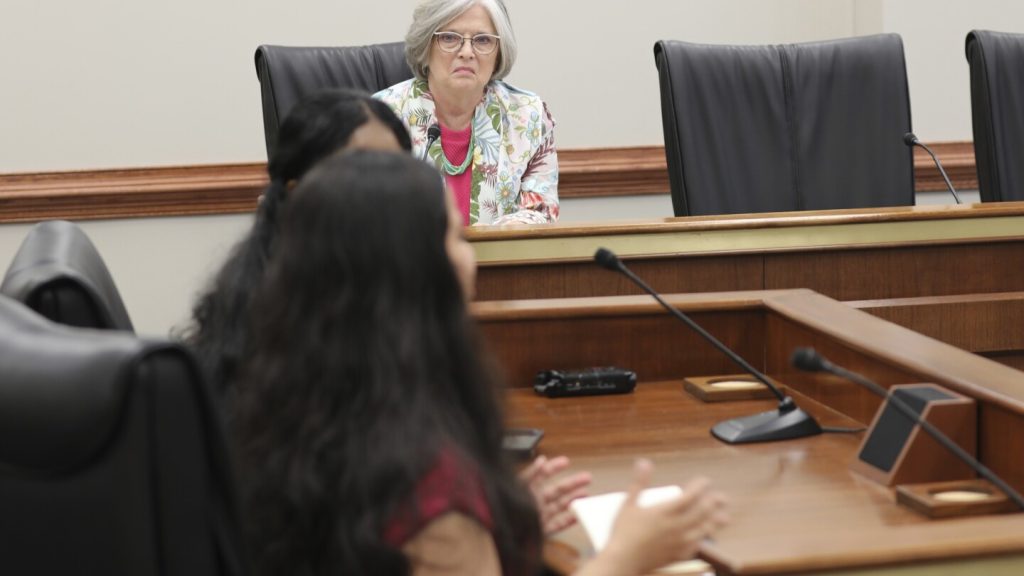In Columbia, South Carolina, progress is being made in increasing the representation of women in political office. The state recently elected its sixth female senator, moving it up from last place in the U.S. in terms of the percentage of women in its upper chamber. While the Senate subcommittee currently deciding on a proposal to remove the sales tax from feminine hygiene products is all-male, they listened to five women speak in favor of the bill. Republican Sen. Katrina Shealy, the first woman to break a four-year streak of no women in the Senate in 2013, emphasized the importance of keeping products like pads and tampons affordable and accessible, especially for young women in poverty.
The bill to remove sales tax on feminine hygiene products, which was previously approved unanimously in the House, passed through the Senate subcommittee and is now headed to the Senate floor. With only three weeks left in the session, Shealy is a key figure in ensuring the bill reaches the governor’s desk. In efforts to increase the representation of women in political office, South Carolina women have started organizing to support and encourage more women to run for office, from the General Assembly to school boards. SC Women in Leadership, a group that has been operating for six years, provides training and support for women candidates from both Democratic and Republican parties.
South Carolina currently has a low percentage of women in its Senate and House, with only 27 out of the 170 senators and House members being women. Despite this, the addition of Democratic Sen. Tameika Isaac Devine in January helped increase the state’s ranking compared to other states with fewer female representatives. The five women currently serving in the Senate have worked together to prevent the passing of restrictive abortion laws, earning them the nickname the Sister Senators. Women in Leadership emphasizes the importance of women’s voices in leadership and the incorporation of their experiences into policy-making processes. The group supports women in finding positions on government boards and commissions and encourages women to embrace their leadership qualities.
University of South Carolina students Thrisha Mote and Anusha Ghosh spoke at a recent meeting in support of the bill to remove sales tax from feminine hygiene products. They highlighted the importance of acknowledging these products as essential necessities for the health and freedom of individuals, rather than luxury items. South Carolina is one of 21 states that still tax feminine hygiene products, and the state would lose approximately $6 million in revenue if the bill is passed. In addition to advocating for this bill, the women of the South Carolina General Assembly are working on other legislation to bring their perspectives to the forefront. Republican Sen. Sandy Senn, for example, has introduced a bill that would allow cosmetologists to provide hair styling and makeup services in mobile studios or homes, providing more flexibility for clients preparing for special events.
The efforts to increase the representation of women in political office in South Carolina are seen as a crucial step towards bringing diverse perspectives and experiences to policy-making processes. With more women running for office in the upcoming elections, there is growing momentum behind this movement. By supporting women candidates, providing training and resources, and advocating for bills that address important issues such as the affordability of feminine hygiene products, women in South Carolina are working towards a more inclusive and representative political landscape.


